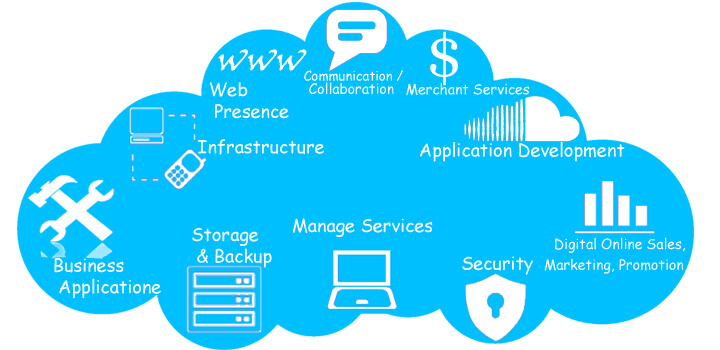If you’ve looked into any technology for your business in the last year, you’ve undoubtedly encountered a host of software that relies on “cloud data” and cloud storage. Switching from computer hard drives, emails and USBs to cloud storage can increase productivity and boost security.
Instead of having to hope your password protection gets the job done or risk losing everything to a computer malfunction, cloud software, storage and collaboration ensures that your most important data is always secure and updated in real time.
Let’s start with a basic overview, then move on to the four types of clouds business owners should know about. Then, we’ll close things off with why the cloud is important for your business.
What is “The Cloud”?
The Cloud doesn’t refer to one specific site or program like Google Drive or Microsoft Azure. Instead, the Cloud is an internet-based network of multiple servers that can store information, run applications and deliver content.
When data is stored “on the cloud” or someone says you can upload your work “to the cloud”, they aren’t talking about the fluffy things in the sky. Your work is actually going to be accessed, updated and stored on the internet rather than your PC.
Some of the most common cloud services you might be familiar with are Google Drive, iCloud, Dropbox, Amazon Cloud Drive and Microsoft OneDrive.
Types of Cloud Servers
There are four primary types of the clouds to be aware of. The first is the public cloud, which offers services and information to the general public over the internet. A private cloud server isn’t shared globally and is typically only available on premises to a select number of people (like your office).
A hybrid cloud combines public and private cloud services depending on the data and its purpose, and a community cloud shares resources between one specific organization.
Why do I need to use cloud services

The Cloud offers many advantages to business owners. For starters, cloud software makes it much easier to share information. Instead of having to send an email with a file to multiple people, everyone who has access to a company cloud can simply access the file from their own computers.
Collaborative projects can be worked on and updated in real time over the internet, so you won’t have to wait for someone to make changes to a document or presentation and send it over to you via email.
Another major benefit is cost. Most cloud programs offer a large amount of storage for free, and additional limits aren’t very expensive. Rather than having to spend a lot of money on high-end computers with massive storage, all you need is a good internet connection and some help learning how to use it from resources like Microsoft Azure training.
Google Chromebooks are a primary example of cloud-based computers. Rather than relying on hardware and applications to get the job done, computers in the Chromebook category utilize the internet and Google Drive’s suite of programs to create, edit and manage data.
How to Make the Change
The switch to cloud computing isn’t done overnight. A lot of data has to be reconfigured and uploaded to your new cloud server, but the decision to begin working on the cloud can revolutionize your office, protect your important files and streamline your collaborative work space.





